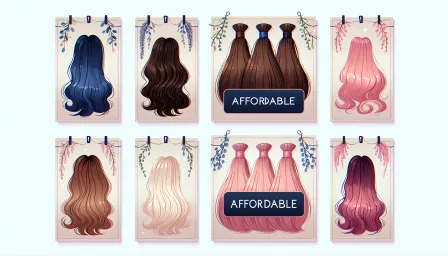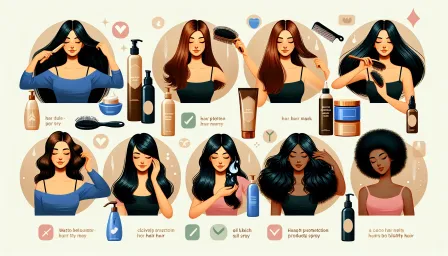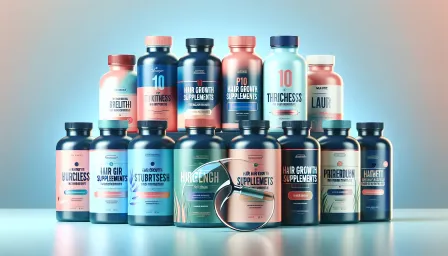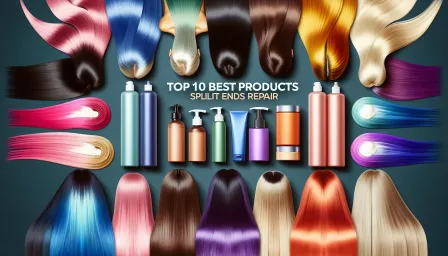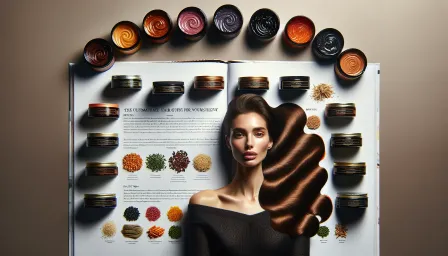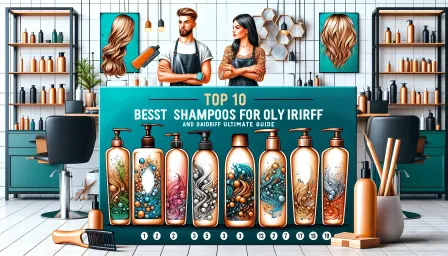Discover the Hair Loss and Diet Connection: Foods That Promote Healthy Hair

Explore the Hair Loss and Diet Connection. Learn about the foods that promote healthy hair and how diet impacts hair growth.
Hair loss can be a distressing experience, affecting both men and women. While genetics, age, and hormonal changes are well-known contributors to hair loss, an often-overlooked factor is diet. Understanding the hair loss and diet connection can be pivotal in addressing this common issue. In this article, we delve into how diet impacts hair health and which foods you should incorporate to promote healthy hair growth.
Hair Loss and Diet: The Impact of Nutrition
Nutrition plays a vital role in maintaining the health of your hair. Hair follicles, like any other cells in the body, require a steady supply of nutrients to function correctly. A diet lacking essential vitamins, minerals, and proteins can lead to weakened hair structure, slower growth, and increased shedding.
Essential Nutrients for Healthy Hair
Incorporating a balanced diet with specific nutrients can help combat hair loss and encourage stronger, healthier hair. The following are key nutrients and their sources:
Protein: The Building Block of Hair
Hair is primarily composed of a protein called keratin. Therefore, adequate protein intake is crucial for hair growth and strength.
- Sources: Lean meats (chicken, turkey), fish, eggs, legumes, and dairy products.
Iron: Preventing Hair Thinning
Iron deficiencies can lead to hair thinning and loss. This mineral helps red blood cells carry oxygen to hair follicles, supporting their growth and health.
- Sources: Red meat, spinach, lentils, and fortified cereals.
Omega-3 Fatty Acids: Nourishing the Scalp
Omega-3 fatty acids hydrate the scalp and support hair's overall health. They are essential fats that the body cannot produce on its own.
- Sources: Fatty fish (salmon, mackerel), walnuts, chia seeds, and flaxseeds.
Vitamin A: Promoting Sebum Production
Vitamin A aids in the production of sebum, an oily substance that moisturizes the scalp and keeps hair healthy.
- Sources: Carrots, sweet potatoes, kale, and spinach.
Vitamin C: Enhancing Iron Absorption
Vitamin C enhances the absorption of iron from the diet and helps in the production of collagen, which strengthens hair.
- Sources: Citrus fruits (oranges, lemons), strawberries, bell peppers, and broccoli.
Zinc: Promoting Hair Repair
Zinc plays a role in hair tissue growth and repair, and it also helps keep the oil glands around the follicles working properly.
- Sources: Shellfish, beef, pumpkin seeds, and lentils.
Biotin: Strengthening Hair Structure
Biotin, a B vitamin, is vital for hair health. It supports the production of keratin, which strengthens hair structure.
- Sources: Eggs, almonds, avocados, and whole grains.
Top Foods to Consume for Healthy Hair
To incorporate these nutrients into your diet, consider adding the following foods, known for their hair-boosting properties:
Eggs
Eggs are rich in protein and biotin, making them an excellent choice for strengthening hair follicles and promoting hair growth.
Spinach
Spinach is a nutritional powerhouse, providing iron, vitamin A, and vitamin C, which all contribute to scalp health and strong hair.
Fatty Fish
Salmon, mackerel, and herring are loaded with omega-3 fatty acids, which help nourish the scalp and add shine to your hair.
Nuts and Seeds
Walnuts, almonds, chia seeds, and flaxseeds are great sources of omega-3 fatty acids, zinc, and vitamin E, all of which support hair health.
Berries
Berries like strawberries and blueberries are high in antioxidants and vitamin C, aiding in collagen production and iron absorption.
Sweet Potatoes
Sweet potatoes are rich in beta-carotene, which is converted to vitamin A in the body. Vitamin A promotes sebum production, keeping your scalp moisturized.
Legumes
Beans and lentils are excellent plant-based sources of protein, iron, and biotin, supporting hair growth and strength.
Addressing Common Hair Loss Conditions with Diet
Aside from incorporating hair-friendly foods into your diet, understanding specific hair loss conditions and how diet can address them is crucial.
Androgenetic Alopecia
This is a common form of hair loss affecting both men and women. While genetics play a significant role, maintaining a diet rich in antioxidants and essential fatty acids can help slow its progression.
- Foods to Eat: Berries, fatty fish, nuts, and green leafy vegetables.
Telogen Effluvium
Often triggered by stress, illness, or drastic weight loss, telogen effluvium can be mitigated by ensuring a diet rich in vitamins and minerals, particularly iron and zinc.
- Foods to Eat: Red meat, shellfish, legumes, and fortified cereals.
Conclusion
The connection between hair loss and diet is undeniable. By ensuring your diet is rich in essential nutrients like protein, iron, omega-3 fatty acids, vitamins A and C, zinc, and biotin, you can promote healthier hair growth and potentially reduce hair loss. Remember, while diet is a powerful tool in maintaining hair health, it's not a substitute for professional medical advice. If you're experiencing significant hair loss, consult with a healthcare provider or dermatologist to explore all your options.





